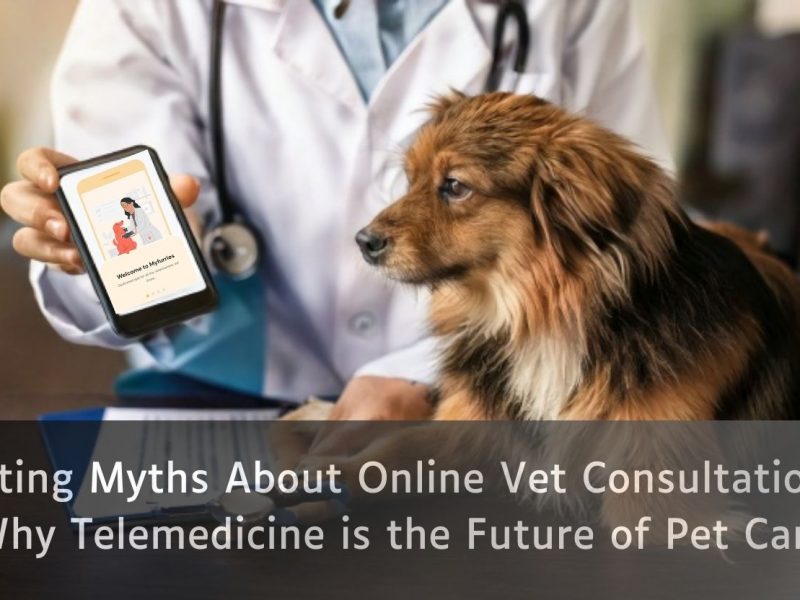Veterinary medicine is experiencing unprecedented transformation, driven by technological advancements, scientific breakthroughs, and a growing emphasis on animal welfare. As the field evolves, veterinarians explore innovative approaches to enhance animal care and welfare, improve disease diagnosis and treatment, and address pet owners’ complex challenges.
Read on for the trends and advancements in veterinary medicine today and the ones expected tomorrow.
Technological Advancements
Artificial Intelligence (AI) and Machine Learning
AI and machine learning are revolutionizing veterinary medicine, offering powerful tools for data analysis, image interpretation, and predictive modeling. These technologies are being used to:
- Improve disease diagnosis: AI algorithms can analyze medical images, such as X-rays, CT scans, and ultrasounds, to identify and diagnose abnormalities.
- Predict disease risk: By analyzing genetic data, medical history, and environmental factors, AI can help identify animals at risk for certain diseases, allowing for early intervention and preventative care.
- Optimize treatment plans: AI can analyze treatment outcomes and patient data to identify the most effective treatment options for individual animals.
- Develop personalized medicine: AI-powered platforms can help veterinarians develop customized treatment plans based on an animal’s unique genetic makeup and medical history.
Robotics and Automation
Robotics and automation are being used to improve the efficiency and accuracy of veterinary procedures, reduce human error, and enhance animal welfare. Robotic surgical systems, for example, can perform delicate procedures with greater precision and less trauma than traditional surgical techniques. Automated systems can streamline tasks such as sample preparation, data entry, and inventory management.
Wearable Technology and Telemedicine
Wearable technology, such as activity trackers and health monitors, is becoming increasingly popular in veterinary medicine. These devices can provide valuable data on an animal’s health and behavior, allowing veterinarians to monitor their patients remotely and intervene early if necessary. Telemedicine, which provides veterinary care remotely through video conferencing or other means, is also gaining traction, offering convenience and accessibility for pet owners.
Genetic Testing and Personalized Medicine
Genetic testing is becoming a valuable tool in veterinary medicine. It allows veterinarians to identify genetic predispositions to diseases, assess disease risk, and develop personalized treatment plans. By understanding an animal’s genetic makeup, veterinarians can tailor their care to meet each patient’s specific needs.
Personalized medicine, which involves tailoring treatment plans to the individual needs of a patient, is becoming increasingly important in veterinary medicine. Genetic testing can help identify genetic variations affecting an animal’s response to certain medications or treatments, allowing veterinarians to select the most appropriate therapies.
Regenerative Medicine
Regenerative medicine, which involves using biological materials to repair or replace damaged tissues, is showing promise in veterinary medicine. Stem cell therapy can treat various conditions, including joint diseases, spinal cord injuries, and heart disease.
Emerging Therapies and Treatments
- Nanotechnology: Nanotechnology, which involves manipulating matter at the atomic and molecular scale, is being explored for use in veterinary medicine. Nanomaterials can deliver drugs to specific cells or tissues, improve imaging techniques, and develop new diagnostic tools.
- 3D Printing: 3D printing is used to create custom prosthetics, implants, and surgical models, improving the quality of animal care.
- Gene Editing: Gene editing technologies, such as CRISPR-Cas9, are being investigated for their potential to treat animal genetic diseases.
Addressing Global Challenges
Veterinary medicine is not just about treating individual animals; it’s about addressing global challenges. Veterinarians play a crucial role in preventing and controlling zoonotic diseases, combating antimicrobial resistance, and helping animals adapt to the changing climate. Their work is not just important, but integral to the health and well-being of both animals and humans.
- Zoonotic Diseases: Zoonotic diseases can be transmitted between animals and humans. Veterinarians play a vital role in preventing and controlling zoonotic diseases through vaccination, biosecurity measures, and surveillance.
- Antimicrobial Resistance: Antimicrobial resistance is a growing global health threat. Veterinarians can help combat antimicrobial resistance by using antibiotics judiciously, promoting vaccination, and implementing biosecurity measures.
- Climate Change: Climate change is having a significant impact on animal health. Veterinarians can help animals adapt to climate change by providing appropriate care and prevention strategies.
Improving Animal Welfare
Animal welfare is not just a concern, but a commitment for veterinarians. They play a crucial role in promoting animal welfare by providing compassionate care, educating pet owners, and advocating for animal welfare policies. This commitment is not just a professional duty, but a moral imperative that guides their practice.
- Pain Management: Veterinarians must ensure that animals receive adequate pain management during and after procedures.
- Behavioral Health: Behavioral health is an essential aspect of animal welfare. Veterinarians can help pet owners address behavioral problems through training and counseling.
- End-of-Life Care: Veterinarians can provide compassionate end-of-life care for animals, helping pet owners make difficult decisions about euthanasia.
The Future of Veterinary Medicine
The future of veterinary medicine is bright, with exciting advancements. As technology continues to evolve and scientific understanding deepens, veterinarians will be able to provide even more effective and compassionate care for animals. By embracing innovation, addressing global challenges, and prioritizing animal welfare, veterinarians can help shape a brighter future for animals and humans.



